
BAR/NONE RECORDS: Three Decades Is The Magic Number
(ABOVE: Glenn Morrow’s Cry For Help, left to right: Glenn Morrow, Mike Rosenberg, Ron Metz, Ric Sherman — Gail Job photo)
by Mike Cimicata
images courtesy of Bar/None Records
In an era when cultural and especially musical institutions are disappearing at a rate that would give Darwin pause, Bar/None Records’ 30th anniversary feels all the more special and inspiring. Hoboken had been well established as a hub for independent music for a half-decade before the label made its debut in town in 1986, launching albums by soon-to-be indie darlings They Might Be Giants and local heroes Rage To Live.
Key releases by the up-and-coming likes of Yo La Tengo, Freedy Johnston and Of Montreal kept Bar/None’s profile strong through the ’90s, while the turn of the millennium saw the label become a home for indie royalty like Alex Chilton, Evan Dando and Luka Bloom. Amidst new music and reissues by The Feelies and The dB’s, their greatest triumph so far this decade has been the widely acclaimed Jersey post-emo punk/pop visionaries The Front Bottoms.
To mark three decades of wildly original releases on the label, hMAG picked the brain of longtime Bar/None head Glenn Morrow.

hMAG: What was going on musically when you first got to Hoboken?
Glenn Morrow: I was in a band called “a” that was the first band to play Maxwell’s back in the summer of 1978. We had to play three sets but we only had enough material for two sets, so I played a solo set first. My car was stolen that very day on River Road and I was inspired to write a song that I played called “Someone Stole My Car.”
Prior to Maxwell’s, there was a loft party music scene that was a mix of jazz and folk musicians following in the wake of the band The Insect Trust. I think the first live music I heard was Gene D. Plumber playing spoons in a local bar. Gene is still going strong.
When Steve Fallon opened Maxwell’s as a music venue, I was living right around the corner. I was working at a music magazine in the city called New York Rocker and I booked some of the bands that I met through that job, like The Fleshtones, The dB’s and The Necessaries. Music fans who ventured to Hoboken quickly realized it was a place they could live affordably. By the mid-’80s, bands from all over the country were living here, including Yo La Tengo, two Sonic Youth drummers, most of The dB’s, The Bongos, The Silos, The Cucumbers, my band The Individuals, Freedy Johnston, Gut Bank, BellSkye, Cries, Tiny Lights, Otis Ball and The Chains, Health and Happiness Show and many, many more.

H: Was running a record label something you’d wanted to do for a long time?
G: Bar/None was actually started by Tom Prendergast, who bartended at Maxwell’s and started a record store in town called Pier Platters. The first release was by a band I was in called Rage To Live. I’d been in bands for about ten years and had just gotten married and some of my band members were in demand as session guys so it was not feasible to do much road work. I suggested to Tom that I should become his partner and work on a band I had just met called They Might Be Giants. Stiff Records was a real inspiration with their eclectic roster of artists. I spent a lot of time hanging out with Charles Ball who was involved with Ork Records and Lust/Unlust Records. He put out lots of New York underground bands in the late ’70s. I also learned a lot from Paul Stark of Twin/Tone Records and Steve Fallon of Coyote Records.
H: How would you describe the label’s philosophy and aesthetic?
G: We look for artists who write great songs with a somewhat left field approach. We’ve definitely put some effort into attempting to reinvent the wheel of pop music, not always successfully.
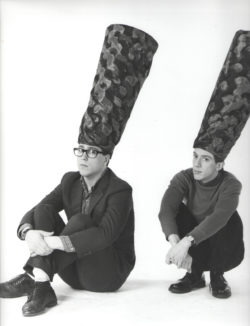 H: What have been your proudest moments?
H: What have been your proudest moments?
G: The early success of They Might Be Giants, the unleashing of Space Age Bachelor Pad Music [by Esquivel] on an unsuspecting world, the brilliant Freedy Johnston album Can You Fly and the recent growing success of The Front Bottoms. I got to work with some of my musical heroes like The Feelies, Edwyn Collins and Alex Chilton and people I consider to be good friends like Kate Jacobs and Ira and Georgia of Yo La Tengo.
H: How are you coping with the changing landscape of the music business in recent years?
G: We started just making vinyl [in the 1980s]. Now vinyl has returned, but our biggest income source is often streaming, so it’s not just about selling something to a consumer, it’s about trying to get them to click on your stuff—a true paradigm shift.
H: What the heck is the deal with the slash in Bar/None?
G: That’s the “bar” in Bar/None! Maybe we stole it from Twin/Tone. Tom came up with the name, saying “We’re only going to sign the best, bar none.”
 H: Freedy Johnston was certainly one of your great finds.
H: Freedy Johnston was certainly one of your great finds.
G: He was living in Astoria when we signed him and we suggested he move to Hoboken to get into our local music scene. He participated in a weekly music series called Kitchen Table Music that Tom Vincent ran out of the club Live Tonight [now Mills Tavern] and also hosted folks like The Marys, Kate Jacobs and Jim Mastro. Everyone was knocked out by Freedy’s world-class songwriting talent and the whole community got involved with his album Can You Fly. It is still my all-time favorite album on Bar/None.
It was recorded in town at Water Music with local players like Graham Maby, Jared Michael Nickerson, Chris Stamey, Jane Scarpantoni, Dave Schramm, Syd Straw, Marshall Crenshaw and Kevin Salem. The move to Elektra [for his next album] worked out for everyone, and he came back to Bar/None for the album Rain In The City when his time with Elektra was over. An interesting fact is that he was signed at Elektra by Nancy Jeffries, who spent time in Hoboken in the 1960s as the singer for The Insect Trust.
 H: You scored a massive hit in the mid-’90s when you picked up the U.S. release of Edwyn Collins’ solo breakthrough Gorgeous George and the single “A Girl Like You.”
H: You scored a massive hit in the mid-’90s when you picked up the U.S. release of Edwyn Collins’ solo breakthrough Gorgeous George and the single “A Girl Like You.”
G: Edwyn was really fun to hang with. His touring band included Paul Cook from The Sex Pistols. Besides being a brilliant songwriter he had that amazing voice and a real smart visual sense of style as well. It all came together with the song “A Girl Like You” and Gorgeous George. We actually did the record deal on a napkin, which I still have in a file drawer. The song became a big radio hit here when it was included on the soundtrack to the cult movie Empire Records.
H: The cred and acclaim The Front Bottoms have received has been substantial.
G: Emmy Black, who shares an office with us now and runs Rhyme & Reason Records [Edison, The Suffers, Fiction Plane], was the one who turned me on to them. I immediately recognized what great songwriters they were. When I heard early songs like “Maps,” “The Beers” and “Father,” I knew these guys knew had a real gift. Emmy and I went to see them at an all-ages venue in Montclair called the Meatlocker, and the kids were going crazy singing along to all the songs. The band was pretty ragged at the time but I sensed they were going to get better. They were already connecting to their fans in a deep way. Brian and Matt are childhood friends, much like the two Johns in They Might Be Giants, and I think I recognized the power of that common bond. They also had a great work ethic. These were guys who were all in.
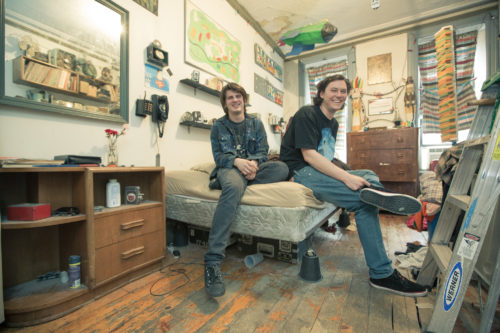
H: Do you feel that Hoboken is still an artist- and music-friendly community?
G: I know a lot of artists who were priced out of town over the years. I went to Northern Soul a couple months back for the first time and thought “what a great venue” and bam, they were shut down. The sports bar certainly rules in town, but I think we may be on the upswing of late. There’s a need for cultural events here. Little City Books is doing interesting readings as well as music. Maxwell’s has a revamped back room. I have to be optimistic because I’m in a new band called Glenn Morrow’s Cry For Help and we need places to play!

Gail Job photo
Mike Cimicata is a producer for The Orchard, a subsidiary of Sony Music Entertainment. A longtime Hoboken resident, he has been DJing in town regularly since 1999. www.mikecmusic.com

 Previous Article
Previous Article Next Article
Next Article ‘SINATRA’S HOUSE, WE JUST LIVE IN IT’: Work Begins on Luxury Condos at Frank’s 415 Monroe Street Birthplace in Hoboken
‘SINATRA’S HOUSE, WE JUST LIVE IN IT’: Work Begins on Luxury Condos at Frank’s 415 Monroe Street Birthplace in Hoboken  HOBOKEN NINE CELEBRATE 172 YEARS OF ‘BASE BALL’: Saturday, June 16th at Stevens
HOBOKEN NINE CELEBRATE 172 YEARS OF ‘BASE BALL’: Saturday, June 16th at Stevens 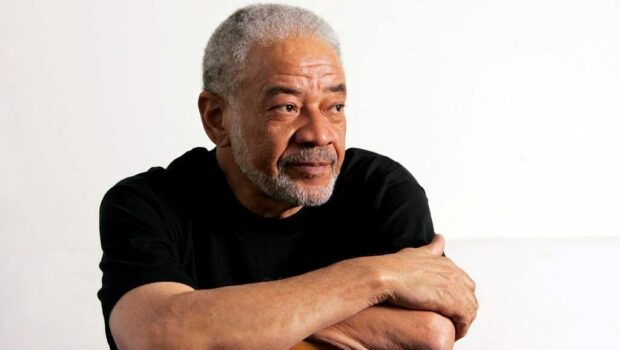 FRIDAYS ARE FOR FRANK: “Ain’t No Sunshine” (Nancy Sinatra); RIP Bill Withers
FRIDAYS ARE FOR FRANK: “Ain’t No Sunshine” (Nancy Sinatra); RIP Bill Withers 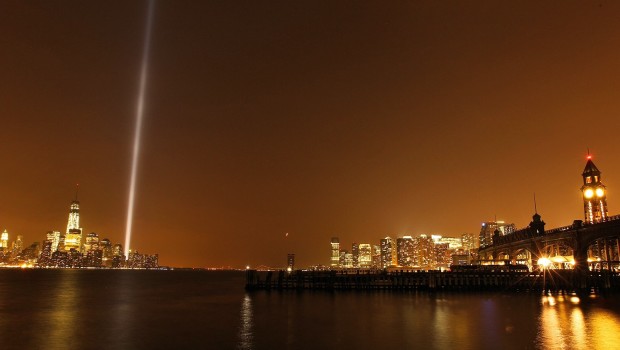 September 11, 2001 — the Hoboken Community Remembers
September 11, 2001 — the Hoboken Community Remembers 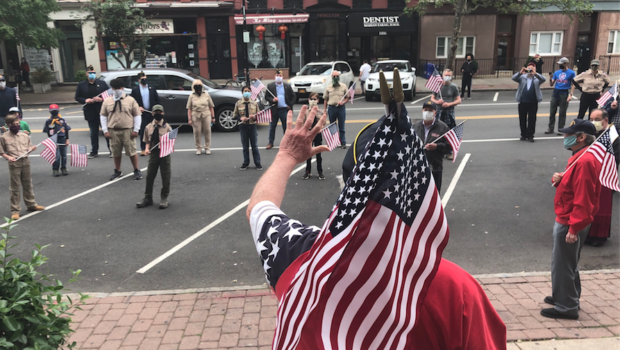 “WE CAN NEVER FORGET”: Hoboken Memorial Day Parade Soldiers On, Preserving a 122-Year Salute to Those Who Gave All — PHOTO GALLERY
“WE CAN NEVER FORGET”: Hoboken Memorial Day Parade Soldiers On, Preserving a 122-Year Salute to Those Who Gave All — PHOTO GALLERY  FRIDAYS ARE FOR FRANK: “New York, New York”
FRIDAYS ARE FOR FRANK: “New York, New York”  FRIDAYS ARE FOR FRANK: “Frank Sinatra Has A Cold” (Coronavirus Edition)
FRIDAYS ARE FOR FRANK: “Frank Sinatra Has A Cold” (Coronavirus Edition)  “On the Waterfront,” Starring… Hoboken!
“On the Waterfront,” Starring… Hoboken!